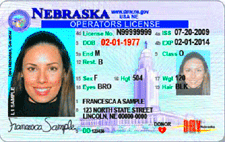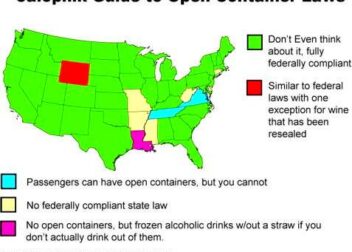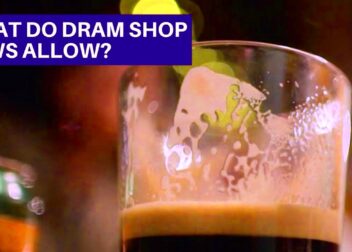Understanding Nebraska Alcohol Licensing Laws
Nebraska has specific laws governing the sale and distribution of alcohol. These laws ensure that alcohol is sold responsibly and safely. Understanding these laws is crucial for anyone looking to open a business that serves or sells alcohol. This guide will cover the different types of licenses available, the application process, and essential requirements for obtaining a license in Nebraska.
Types of Alcohol Licenses in Nebraska

Nebraska offers several types of alcohol licenses, each catering to different business needs. Here are the primary categories:
- Retail Licenses: These are for businesses that sell alcohol directly to consumers, like bars and restaurants.
- Wholesale Licenses: These licenses are for distributors who sell alcohol to retailers.
- Manufacturer Licenses: This type allows businesses to produce alcohol, such as breweries or distilleries.
- Special Event Licenses: These are temporary licenses for specific events, like festivals or private parties.
Each license has its own requirements and regulations, so it’s important to choose the right one for your business.
Application Process for Alcohol Licenses
The application process for obtaining an alcohol license in Nebraska can seem daunting, but it’s straightforward if you follow these steps:
- Determine the License Type: Identify which type of alcohol license you need based on your business model.
- Gather Required Documents: Collect necessary documents such as proof of identity, business formation papers, and any relevant zoning permits.
- Complete the Application: Fill out the application form accurately. You can usually find this on the Nebraska Liquor Control Commission website.
- Submit the Application: Submit your completed application along with any required fees to the appropriate local authority.
- Attend a Hearing: Some applications may require a public hearing. Be prepared to answer questions about your business plan.
- Await Approval: After submission, your application will be reviewed. This process can take several weeks.
By following these steps, you’ll be well on your way to obtaining your alcohol license and starting your business.
Requirements for Obtaining an Alcohol License
Obtaining an alcohol license in Nebraska involves meeting specific requirements that ensure responsible sale and consumption. Here’s a breakdown of what you’ll need:
- Age Requirement: Applicants must be at least 21 years old to hold an alcohol license.
- Business Structure: You must have a registered business entity, whether it’s a sole proprietorship, partnership, or corporation.
- Local Zoning Approval: Your business location must comply with local zoning regulations. Check with your local zoning office to confirm your site is approved for alcohol sales.
- Background Check: Most applicants will undergo a background check. A criminal history may impact your ability to obtain a license.
- Financial Disclosure: Be prepared to show proof of financial stability, which may include tax returns or bank statements.
- Responsible Beverage Service Training: Depending on the type of license, you might need to complete a responsible beverage service training course.
Gathering all these documents and meeting these requirements can take time, so it’s best to start early in your licensing process.
Renewal and Modification of Alcohol Licenses
Once you obtain your alcohol license, you’ll need to keep it current through renewals and modifications. Here’s how that works:
- Renewal Process: Alcohol licenses in Nebraska typically require annual renewal. You should receive a reminder from the Nebraska Liquor Control Commission about 30 days before your expiration date.
- Required Documents: During renewal, you’ll need to submit a renewal application, any updated business information, and the applicable fees.
- Modification Requests: If you wish to change your license type, modify your premises, or change the ownership structure, you must submit a modification request.
Be aware that modifications may require a public hearing, especially if they significantly impact your business or the surrounding community.
Common Violations of Alcohol Licensing Laws
Understanding common violations of alcohol licensing laws is crucial for running your business smoothly. Here are some frequent issues that can arise:
- Serving Minors: One of the most serious violations is serving alcohol to individuals under 21. This can lead to hefty fines and license suspension.
- Over-serving Patrons: Allowing customers to drink excessively can result in accidents and liability issues.
- Operating Without a Valid License: Always ensure your license is up-to-date. Selling alcohol without a valid license can lead to immediate penalties.
- Failure to Comply with Local Regulations: Each locality may have additional rules. Ignoring these can lead to fines or loss of your license.
- Improper Storage: Alcohol must be stored according to specific safety regulations. Violations here can also incur fines.
By understanding these common violations, you can take steps to avoid them and ensure your business operates legally and responsibly.
Impact of Local Regulations on Alcohol Licensing
When it comes to alcohol licensing, local regulations can significantly influence how you operate your business in Nebraska. While state laws set the framework, each locality has the power to impose additional rules. Here’s what you need to know:
- Local Ordinances: Cities and counties may have their own alcohol regulations, which could include restrictions on the hours of sale, types of alcohol permitted, or the number of licenses issued in a specific area. Always check your local laws.
- Public Hearings: Some local governments require public hearings for new alcohol license applications or modifications. This gives the community a chance to voice their opinions, and it can affect your application’s outcome.
- Zoning Restrictions: Local zoning laws determine where alcohol sales can occur. You may find that some areas are designated for commercial use while others are not, impacting where you can set up your business.
- Enforcement Practices: Local law enforcement agencies play a role in monitoring compliance with alcohol laws. Their approach can vary, so understanding their practices can help you remain compliant.
By being aware of local regulations, you can navigate the licensing process more effectively and build a positive relationship with your community.
Frequently Asked Questions about Alcohol Licensing in Nebraska
Many people have questions about alcohol licensing in Nebraska. Here are some common inquiries and their answers:
- How long does it take to obtain an alcohol license? The process can take several weeks, depending on the type of license and local requirements.
- Can I sell alcohol without a license? No, selling alcohol without a valid license is illegal and can result in severe penalties.
- What happens if I violate my alcohol license? Violations can lead to fines, suspension, or even revocation of your license.
- Are there different licenses for different types of alcohol? Yes, Nebraska offers various licenses for beer, wine, and distilled spirits, each with specific regulations.
- Do I need insurance for my alcohol business? While not a licensing requirement, having liability insurance is strongly recommended to protect your business.
Understanding these common questions can help clarify the process and prepare you for what to expect.
Conclusion on Understanding Alcohol Licensing Laws
Navigating alcohol licensing laws in Nebraska can be challenging, but it’s essential for anyone looking to sell or serve alcohol. From understanding the types of licenses available to knowing local regulations and common violations, being informed will help you operate your business legally and responsibly. Always stay updated on any changes in laws or regulations to ensure compliance. By taking the time to understand the licensing process, you’ll be setting your business up for success. Remember, responsible alcohol service is not just a legal requirement; it’s a key part of fostering a safe community.


